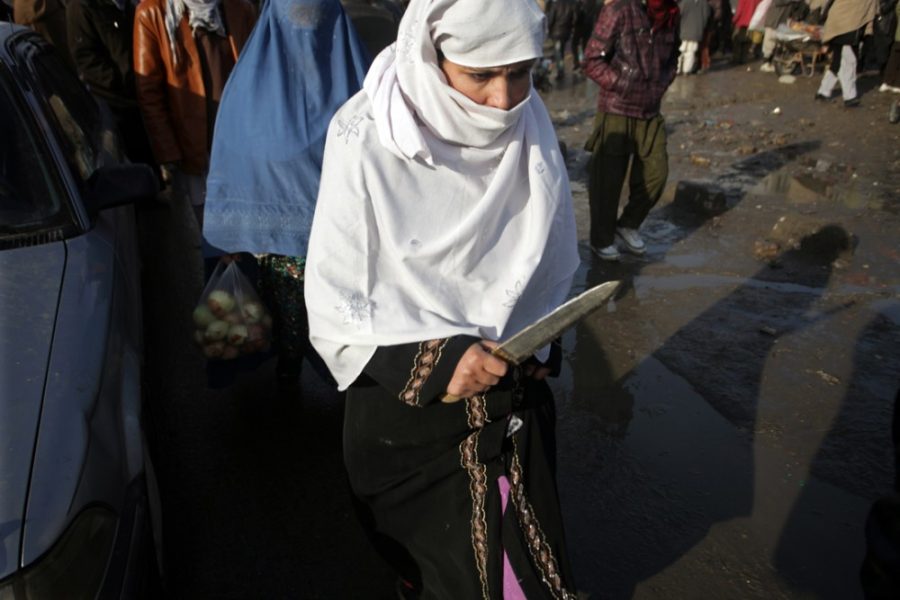Afghan and Pakistani women poets will be in the spotlight Thursday during the Artists’ Talk and Screening of “Shame Every Rose: Images from Afghanistan.”
Photographer and filmmaker Seamus Murphy and author Eliza Griswold teamed up to call attention to Afghan culture and women’s role in it through Murphy’s photography and “landays” written by anonymous Afghan and Pakistani women.
Landays are short, two-line poems created by Pashtun women living around the Afghanistan-Pakistan border. Many of these women are illiterate, so landays are often only conveyed orally and are typically sung to the beat of a hand drum or other rhythmic instrument. According to Griswold’s introduction to landays, available on the Poetry Foundation’s website, there are very few formal requirements for a landay.
“Each has 22 syllables: nine in the first line, 13 in the second,” Griswold writes. “The poem ends with the sound ‘ma’ or ‘na.’ Sometimes they rhyme, but more often not.”
The short poems convey the feelings that these women have towards subjects like war, men, their homeland and their culture.
Landays have been around for hundreds of years as a way for women to express their creativity and voice their opinions in a society that is oppressive towards them. Over time, classic landays are passed down and evolve with the changing times. This rich form of expression in the culture of the Afghan women is a phenomenon that naturally doesn’t call attention to itself, since some of the views women share in landays can get them into serious trouble.
Murphy and Griswold wanted to shed light on landays and the women who embody them, so they decided to travel to Afghanistan and document these poems and their authors. In 2012, the partners took two trips to Afghanistan where they visited the Kabul, Nangarhar and Helmand provinces in search of landays.
Afghan society forbids men from being around women unless they are related or married, so Griswold was in charge of talking to the landay writers and Murphy handled the photography.
“The images I was able to offer to the project were taken indirectly, … in keeping with landays,” Murphy said. “[The landays] are anonymous so that the person making them cannot be found guilty of the opinions or experiences expressed in the poems.”
While on their journey, Murphy and Griswold said they discovered how strong these Afghan women really are.
Due to the stereotypical image of Afghan women shrouded in burqas, many outsiders to the culture see these women as submissive and meek — but listen to one landay, and it is clear that they are much more than they might appear.
“Many of the poems are wickedly funny and raunchy,” Murphy said. “The women don’t spare the feelings of the men, their lovers, American soldiers, President [Hamid] Karzai, the Taliban and so on. So one of the most fun parts was discovering a new gem of a poem that Eliza had just unearthed.”
Murphy and Griswold’s photography and landay collection was originally featured in a show in the Poetry Foundation’s headquarters in Chicago in June 2013. The exhibit went along with that month’s edition of Poetry Magazine, which was solely about landays. The issue was noteworthy for being the first edition of Poetry Magazine to focus on one subject throughout the entire publication.
The UA Center for Middle Eastern Studies also supported Murphy and Griswold in their endeavors.
The next stop for “Shame Every Rose” is at the UA Poetry Center, where Murphy and Griswold will be discussing their work, screening Murphy’s short film “SNAKE” and celebrating the opening of the exhibit itself at 6 p.m.
When asked what his hopes were for the event, Murphy said, “I hope that it will make people realize how sensitive and funny Afghan women are … and that our conception of these women as ignorant and submissive will be challenged after experiencing their poetry.”
_______________
Follow Victoria Pereira on Twitter.









